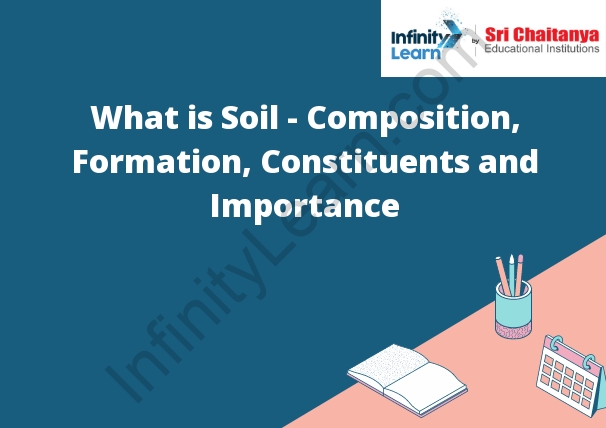Table of Contents
Composition of Soil
What is Soil – Composition:
- Soil is a mixture of inorganic and organic materials that forms on the surface of the earth. It is a natural resource that is essential for plant growth. Soil is composed of four primary components: mineral particles, water, air, and organic matter.
- Mineral particles are the largest and most visible component of soil. They are made up of inorganic materials such as sand, silt, and clay. These particles are formed through the natural weathering of rocks.
- Water is the second-largest component of soil. It is essential for plant growth and is used by plants to transport nutrients and minerals.
- Air is the third-largest component of soil. It is necessary for plant growth and is used by plants to transport oxygen.
- Organic matter is the smallest and most important component of soil. It is made up of organic materials such as plant debris, animal waste, and microbes. Organic matter is essential for plant growth because it provides nutrients and minerals. It also helps to retain water and air in the soil.

Constituents of Soil
- Soil is composed of inorganic and organic matter, water, and air. The inorganic matter is made up of minerals, and the organic matter is made up of decayed plants and animals.
- Soil is a mixture of organic and inorganic material that covers the surface of the Earth. It is a natural resource that is essential for plant growth. Soil is composed of three primary constituents: mineral particles, organic matter, and water.
- The mineral particles in soil are made up of rock fragments and minerals. The smaller the particle size, the more surface area is available for plant roots to grow. The most common mineral particles in soil are sand, silt, and clay.
- Organic matter in soil is made up of plant and animal matter. It is responsible for the nutrients and water retention in soil. The organic matter in soil is also a food source for bacteria and other organisms that help to break down minerals into plant-available nutrients.
- Water is the third primary constituent of soil. It is necessary for plant growth and is responsible for the transportation of nutrients and minerals to plant roots. Soil can hold a lot of water, but the amount of water available to plants depends on the soil type.
Importance of Soil
- Soil is one of the most important natural resources on Earth. It is a vital part of the ecosystem, and it is necessary for the growth of plants. Soil contains minerals and nutrients that plants need to grow, and it also helps to control the water cycle. Soil is also home to many different types of bacteria and other microorganisms that play an important role in the environment.
- Soil is one of the most important natural resources because it is necessary for plant growth. Soil is a mixture of minerals, organic matter, air, and water. It is the foundation of the food chain because plants need it to grow, and animals need plants to survive. Soil also helps to control erosion, recycle nutrients, and purify water.



